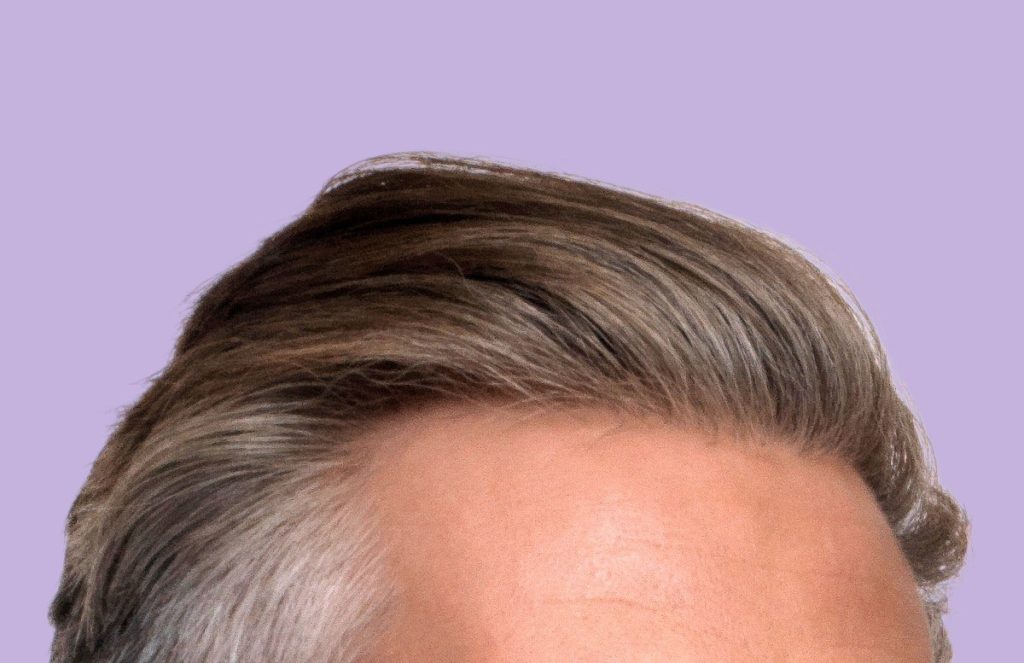Hair transplants are an increasingly common procedure, with the number of men going in for this kind of cosmetic surgery more than doubling in the past decade. There’s no doubt that front-page stories about celebrities who’ve had hair transplants have increased awareness – but how much is a hair transplant and is it right for you?
How much is a hair transplant?
Having a hair transplant is not a cheap option – the average hair transplant cost in the UK will set you back between £1000 – £3000 and can often cost much more). So why are hair transplant costs in the UK so high and are transplants the right option for you?
Prices for hair transplants can vary dramatically, and just like many things in life, you get what you pay for. More experienced, trustworthy cosmetic surgeons will cost more. The better the clinic you attend, the higher the price.
Perhaps due to the rise in demand and interest in hair transplants, there has been a growth in ‘bargain’ hair transplant surgeries across the UK. Unfortunately, while the price is lower, you may end up with a poorly executed surgery. Inexperienced doctors may place the wrong kind of hair in the wrong place on your head or not think about your long term hair patterns.
This means, for instance, you might get a new hairline in your twenties but because they doctor didn’t plan long term, you’ll end up with a thick hairline at the front but thinner hair over the crown, which will look rather unnatural.
In any case, it’s hard to say how much your particular hair transplant is going to cost since the price will vary depending on the amount of surgery to be done. If it’s just a small transplant you’ll pay less, but a big operation will naturally cost more. At the time of writing, you should expect to pay from £2 – £10 per graft. Most transplants will begin with at least a couple of thousand grafts.
Hair transplant cost abroad
If the hair transplant cost in UK surgeries is putting you off, you might consider getting the surgery done abroad – there are various locations in Europe and beyond where you can get a lower cost hair transplant. Of course, there are risks here, including the fact that you don’t speak the language (so can’t read contract small print) and it can be hard to hold surgeons abroad accountable if they do a bad job.
And don’t forget you’ll have to factor in the cost of flight tickets, food and accommodation during your visit too.
What happens during a hair transplant?
There are two methods for doing hair transplants but they work in much the same way. Hair follicles are removed from parts of your scalp where they are not so visible and moved to an area where you have lost hair. Your surgeon should select follicles from a part of the head which is not at risk of balding itself, so those follicles should last for a long time.
The two kinds of hair transplant are:
Follicular unit transplantation
Thin strips of skin are taken from the back of your head – each of which contains 1-4 hair follicles. Tiny cuts are made into the scalp and these strips are stitched in.
Follicular unit extraction
The back of your head is shaved and hair follicles are removed one by one. These are then placed in tiny cuts in the scalp and stitched into place.
After the surgery is complete, you will need to wait a few weeks before the results become properly visible and the new hairs start coming through.
Pros and cons of hair transplants
If you’re considering a hair transplant, here are some pros and cons to help you decide if it’s the right approach for you:
Pros of hair transplants
- Effective
There’s no doubting that, done well, hair transplants are one of the best ways to achieve a full head of hair and this can be a long term solution.
- Quick
Your hair transplant surgery will normally be done in a day (although a bigger transplantation will take two or more sessions) and you can start to see results in a few weeks.
- Long-lasting
Again, assuming the transplant has been done well, your new head of hair should last for many years to come (although it will inevitably thin over time).
Cons of hair transplants
- Hair transplant cost
The most obvious drawback of hair transplants is the cost. They are probably the most expensive way of treating hair loss and should really be seen as a last option once you’ve tried other, less expensive approaches.
- You may need to return multiple times
One of the unfortunate drawbacks of hair transplants is that they’re best suited to middle-aged men with only partial baldness. If you’re in your twenties or thirties, there’s a high chance you still have more hair to lose, so you’ll only have to return in a few years to get more surgery.
- Risks of poor quality surgery
Although you may have found an apparently good surgeon, there’s always a risk your hair transplant may not turn out as expected – with hair growing in an unusual or unnatural pattern.
Alternatives to hair transplants
If hair transplant costs and the other risks of the procedure are off-putting, it’s worth considering other hair loss treatments first. Many of these are available over the counter or from a GP online or in person. Popular treatments include:
- Finasteride (Propecia)
Finasteride is an oral treatment which targets the enzyme that causes hair loss and has a very high success rate – either halting hair loss or even reversing it. It is available under the brand name Propecia or non-brand Finasteride.
- Regaine
Regaine is a topical treatment which you apply to your scalp on a daily basis. It has been shown to stimulate follicles that grow hair – and help them to flourish for longer.
Given how much hair transplant costs in UK cosmetic surgeries – and the real risk that the intervention won’t achieve the expected results – it’s definitely worth making sure you’ve tried some of the cheaper options out there before going under the knife.



